Kōgo Noda
Nascimento : 1893-11-19, Hakodate, Hokkaido Prefecture, Japan
Morte : 1968-09-23
História
Kogo Noda was a Japanese screenwriter most famous for collaborating with Yasujirō Ozu on many of the director's films.

Original Film Writer
TV remake of Ozu's 'Late Spring'

Story
One day a company executive learns that his younger brother, whom he recommended, embezzled company funds. To save the situation he withdraws his life savings and gives money to his younger brother. He then suddenly disappears…
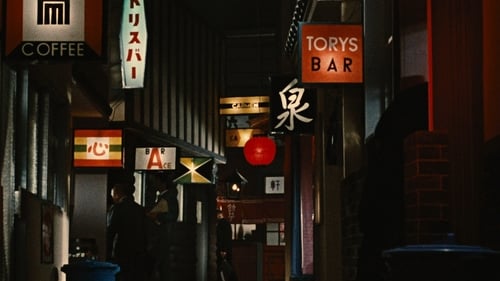
Screenplay
Quando o viúvo Shuhei Hirayama, um militar que lutou na Segunda Guerra Mundial como fuzileiro naval, encontra com seu velho professor, fica sabendo que sua filha ainda não se casou porque teve que ficar cuidando do pai. Com medo de que Michiko, sua filha de 24 anos, acabe com o mesmo destino, ele começa a procurar um bom homem para se casar com ela. Também preocupada com a possibilidade da moça manter-se solteira para não abandonar o pai, uma das irmãs do viúvo sugere que ele se case novamente, de modo a permitir que a filha pense sobre seu próprio casamento.

Screenplay
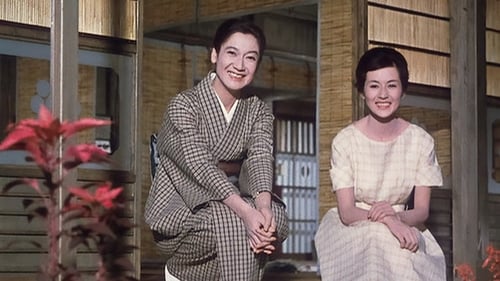
Screenplay
A família de um senhor que dirige uma pequena fábrica de saquê começa a preocupar-se com as suas finanças e a sua saúde depois que descobrem que visita uma velha amante dos tempos da sua juventude. Uma das combinações mais habilmente moduladas de comédia e tragédia de Ozu.

Screenplay
Depois da cerimônia fúnebre em homenagem ao marido, Akiko e a filha Ayako conversam sobre o morto com os amigos Taguchi, Hirayama e Mamiya. Os três especulam sobre o futuro da moça e propõem que ela se case. Ayako recusa, alegando que não quer deixar a mãe sozinha. Depois de uma partida de golfe, os três amigos decidem persuadir a mãe a se casar novamente, permitindo que Ayako possa se sentir livre para fazer o mesmo.
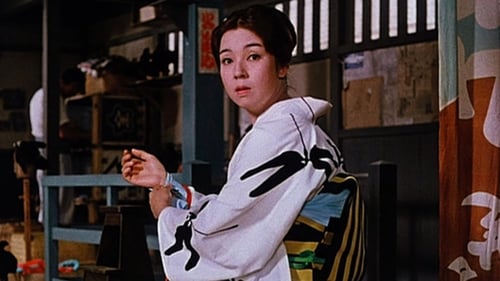
Screenplay
Companhia japonesa de teatro kabuki aporta numa pequena ilha de pescadores. Komajuro (Ganjirô Nakamura), um dos fundadores do grupo, passa a frequentar todos os dias a casa de sua antiga amante, Oyoshi (Haruko Sugimura), dona de um bar e mãe de Kiyoshi (Hiroshi Kawaguchi).

Screenplay
Numa vila nos subúrbios de Tóquio, um dos vizinhos compra uma televisão - artigo de luxo para a época - e todos os garotos do local matam suas horas de estudo para irem assistir ao campeonato de sumô. Dois deles, os irmãos Minoru e Isamu, se encantam tanto que insistem que os pais comprem-lhes um televisor. Com a recusa, eles entram numa greve de silêncio, oque lhes causa problemas com a família, os vizinhos, a escola e a polícia.

Screenplay
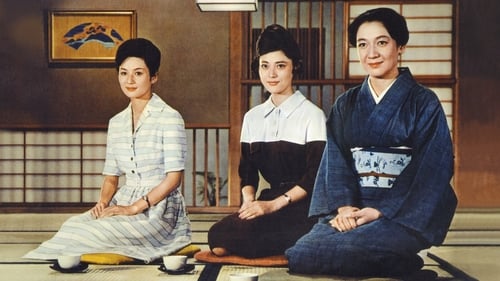
Screenplay
Na recepção do casamento da filha de um velho amigo seu, Hirayama questiona-se porque razão Mikami, outro velho amigo, não compareceu. Na verdade, Mikami estava preocupado com a filha Fumiko, que fugiu de casa com o namorado, e não quis ir à cerimónia. Mikami pede para Hirayama ir ver como Fumiko está. Este visita então o bar onde ela trabalha como empregada. Ao mesmo tempo que Hirayama se mostra compreensivo com Fumiko, fica furioso quando Taniguchi, o namorado de sua própria filha, faz uma surpresa e pede permissão para se casar com ela.
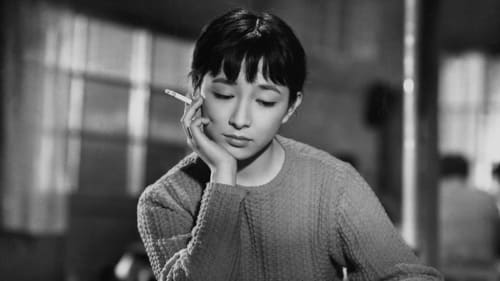
Screenplay
Two sisters find out the existence of their long-lost mother, but the younger cannot accept the fact that she was abandoned as a child.
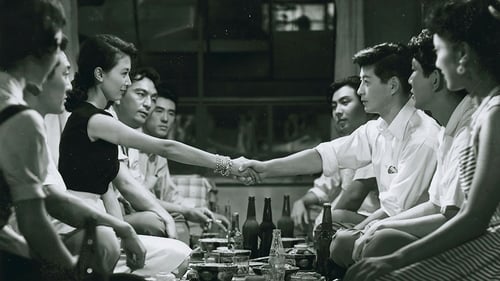
Screenplay
Um jovem assalariado e a sua esposa lutam dentro dos limites do seu relacionamento sem paixão, enquanto ele tem um caso extraconjugal.
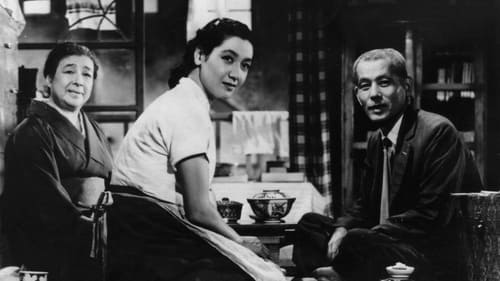
Screenplay
Um casal de idosos deixa sua filha no campo para visitar os outros filhos em Tóquio, cidade que eles nunca tinham ido. Porém os filhos os recebem com indiferença, e estão sempre muito atarefados para terem tempo para os pais. Apenas a nora deles, que perdeu o marido na guerra, parece dar atenção aos dois. Quando a mãe fica doente, os filhos vão visitá-la junto com a nora, e complexos sentimentos são revelados.
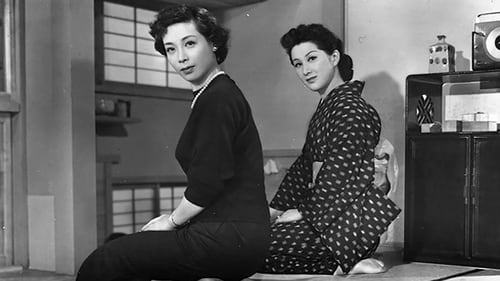
Screenplay
Um casal de meia-idade sem filhos enfrenta uma crise conjugal.
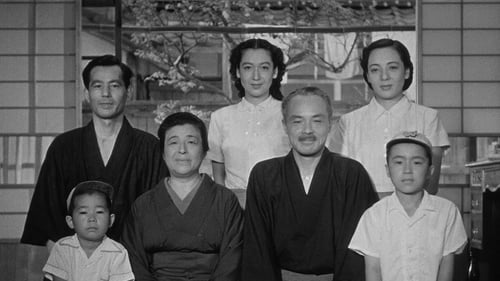
Screenplay
Uma família escolhe um marido para a sua filha de 28 anos Noriko, mas ela surpreendentemente tem os seus próprios planos. Noriko mora em Tóquio no pós-guerra com sua extensa família. Embora ela esteja satisfeita com sua carreira e seus amigos, a sua mais tradicional família se preocupa com o fato de ela ainda estar solteira, aos 28 anos. Quando Takako, 40 anos, faz uma proposta de casamento, a família de Noriko a pressiona para aceitar. Mas quando seu amigo de infância Kenkichi, agora viúvo retorna ao bairro, ela percebe que seu coração a está levando em outra direção. (e Livre - Estimado Livre)
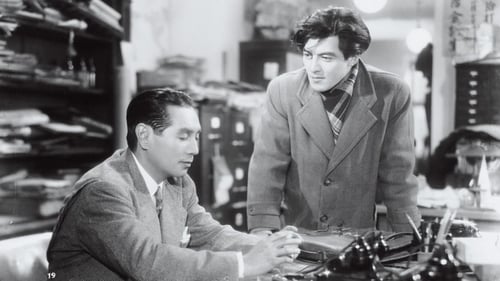
Screenplay
Two journalists and their lovers share an uncertain future.
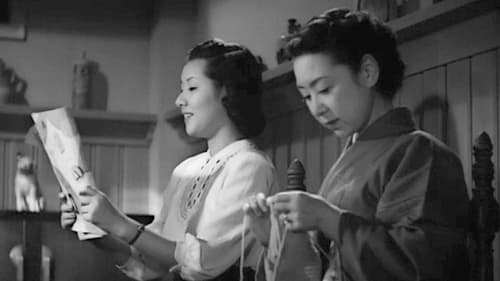
Screenplay
Setsuko is unhappily to Mimura, an engineer with no job and a bad drinking habit. She had always been in love with Hiroshi but both of them failed to propose when Hiroshi left for France a few years ago. Now he is back and Mariko (Setsuko's sister) tries to reunite them. She too is secretly in love with Hiroshi.
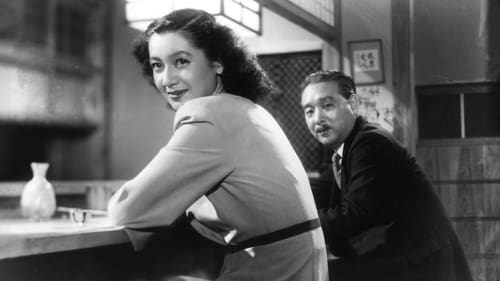
Screenplay
Noriko tem 27 anos de idade e ainda vive com o seu velho pai, o senhor Somiya. O pai é um professor viúvo que deseja casar sua filha, que de acordo com a sociedade, está na hora de entrar em um casamento. Só que Noriko quer continuar cuidado do pai e vivendo com ele para que o velho homem não se sinta sozinho. Ele então, vai fingir estar se casando de novo para que a filha não tenha culpa de se casar e ir embora.
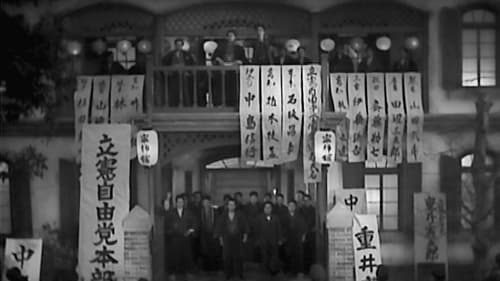
Novel
A woman's struggle for equality in Japan in the 1880s. Eiko Hirayama leaves Okayama for Tokyo, where she helps the fledgling Liberal Party and falls in love with its leader Kentaro Omoi, just as the party is being disbanded by the government.

Screenplay
A lawyer fights doggedly for a more just legal system to rid Japan of its draconian penal system.

Writer
Japanese propaganda film about the Normanton Incident.

Writer
Hiromasa Nomura World War II era film

Writer
In the movies of those times, you can see young boys in the company scene often. Those boys were called kyuji (給仕), which means “waiter” literally. They are doing odd jobs in the company including serving tea, ushering visitors, buying tobacco, etc. Ordering lunch for the individual requests was also an important job. Those boys were hired often as soon as they graduated from elementary school.

Screenplay
Following a young man through his childhood ambition to follow his father into the military to losing his life in combat in China.

Writer
This film was mainly shot in the Japanese skiing resort Hokkaido in 1937-38 and was intended to create support for the coming winter olympics of 1940 in Japan which however were cancelled because of the Japanese-Chinese war. A Japanese production, it was nevertheless made with German involvement in the form of skiing champion Sepp Rist and celebrated cinematographer Richard Angst (who also contributed to the script). Both had regularly worked with the inventor of the mountain film genre, Dr. Arnold Fanck, who had helmed the German-Japanese co-production "Die Tochter des Samurai", also shot by Angst, the year before. Angst apparently stayed in Japan until mid-1939 when he returned to Germany, carrying this film with him. Angst submitted it to the German censors later that year, but for reasons unknown to me it took three more years before the film was finally shown in Germany under the name "Das heilige Ziel" (The Holy Aim). (Karargara)

Writer
A young doctor, Kozo Tsumura, falls for young nurse Katsue Takaishi. But she's got a secret: she's a widow with a son. Kozo and Katsue decide to run away to Kyoto, but her child suddenly became sick and she just missed the train and Kozo. She makes it to Kyoto finally, but is unable to meet him. Plus she isn't accepted into Kyoto society. She goes back to her hometown and tries to forget him. She quits the hospital to concentrate on her singing. She makes her professional debut with the hit "Aizen Katsura". Kozo is in the audience.

Writer
A man and his girlfriend work for a cosmetics company, but would like to open their own store. The company is planning to send someone to Paris for special training and the man tries to get the general manager to send his girlfriend since this training would help them to start their own business. The general manager selects another woman and the trouble begins.

Screenplay
Three men fall in love with the same young girl who works in a tonkatsu restaurant in the Shitamachi district of Tokyo.

Screenplay
The eldest daughter of a noble family is in love with an aviator while being courted by a fellow aristocrat she thinks is a dullard. Told from the perspective of Ryota. In this second part, we learn that Akemi is pregnant...

Screenplay
The eldest daughter of a noble family is in love with an aviator while being courted by a fellow aristocrat she thinks is a dullard. This part is told from the perspective of Akemi.
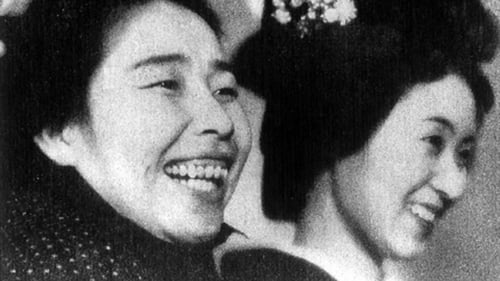
Writer
In a back alley of the Shitamachi district of Tokyo, Kihachi bears witness to a series of romantic complications involving the inhabitants of the neighborhood. Considered to be a lost film.

Screenplay
The film tells of the strained relationship between a mother and her two sons after the death of the family patriarch.

Writer
Ryoichi and Chikako, brother and sister, live together. Chikako toils during the day and, at night, prostitutes herself to fund his college tuition.
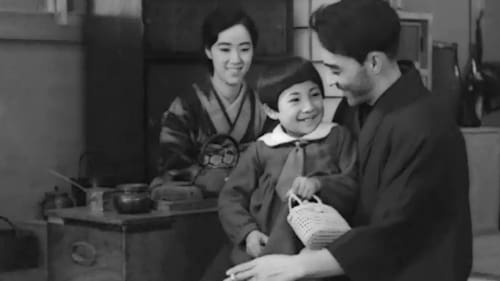
Writer
An actress returns to Tokyo after a successful stint in Hollywood to reclaim—with the help of her gangster brother—the daughter she abandoned years before.

Writer
A young man falls in love with a prostitute and is disowned by his family. He is then drafted, and heads off to war. Script exists - considered to be a lost film.

Screenplay
When a young man inherits his father's lucrative business, he cheats the system to set up three of his college friends with jobs.

Screenplay
Part two of Shimizu's major silent Seven Seas, a family drama of the intertwining fates of the rich, decadent Yagibashis and the far less prosperous Sone family.

Screenplay
The film is a lengthy work interweaving characters from different backgrounds and social strata in a narrative centered around the experiences of its heroine, Yumie Sone. Over two hours long, Seven Seas was released theatrically in two parts, with the first part entitled "Virginity Chapter" coming out in December 1931, while the second part, "Chastity Chapter," followed in March 1932. Near the beginning of the narrative, at a garden party given by the wealthy Yagibashi family in Tokyo, Yumie meets Takehiko, the Yagibashis' playboy son and the brother of Yumie's fiancé, Yuzuru. Yumie, a young middle-class woman, lives with her ailing father, a retired ministry official, an older sister, and a younger sister still a child (played by a very young Hideko Takamine). Takehiko, who has just returned from a trip to Europe, is attracted to Yumie and contrives to have her stay overnight at his family's mansion where he takes advantage of her.
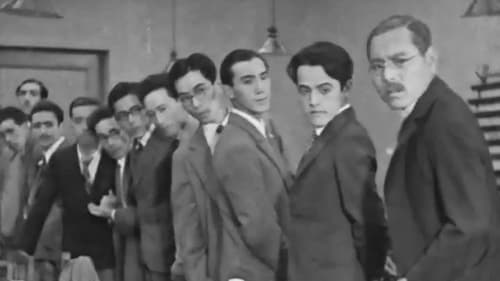
Screenplay
Mr. Omura, a teacher, leads a group of male students in an outdoor drill. One slight, comic young man, Shinji Okajima, has no shirt under his jacket; he scratches at fleas and makes faces behind Omura's back. Jump ahead several years, Shinji is married with three children. He sells insurance, and on the company's annual bonus day, he protests when an older worker is fired. Shinji loses his own job as a result, and he and his wife must find ways to cope. Lassitude, pride, the demands and needs of young children, and relationships from bygone school days all play a part in the outcome of their struggle.

Story
Mr. Omura, a teacher, leads a group of male students in an outdoor drill. One slight, comic young man, Shinji Okajima, has no shirt under his jacket; he scratches at fleas and makes faces behind Omura's back. Jump ahead several years, Shinji is married with three children. He sells insurance, and on the company's annual bonus day, he protests when an older worker is fired. Shinji loses his own job as a result, and he and his wife must find ways to cope. Lassitude, pride, the demands and needs of young children, and relationships from bygone school days all play a part in the outcome of their struggle.

Writer
A salaryman finds some money in the street and gets a reward for returning it to its rightful owner. However his colleagues immediately start borrowing money and selling him things he doesn't need, much to his wife's annoyance. Considered to be a lost film.

Writer
A young couple jump into the sea as part of a suicide pact. The man is rescued and subsequently discovers that his lover is also alive and working in a dance hall. Considered to be a lost film.

Writer
The film revolves around a desperate man who commits a crime in order to support his family, and the moral dilemma the policeman who tracks him down finds himself in.

Writer
A farmer’s boy, obsessed with his balsa-and-paper flying models and with dreams of real aircraft, develops a friendship with the daughter of the local squire, who introduces the lad to her pilot brother and his flying officer friends; through hard work, and despite the handicap of a lowly class status, he eventually succeeds in qualifying as a pilot and joining the air force.

Writer
Bored in his marriage, a dentist flirts with a young woman on a train. However he soon finds himself embroiled in a series of misunderstandings with his wife, the young woman and her husband. Considered to be a lost film.

Writer
When Sakamoto is made redundant he cannot bring himself to tell his wife. Instead he investigates other employment opportunities. Considered to be a lost film.

Screenplay
The remaining fragments of an early Ozu film. It is the simple story of two friends who live together in a poor tenement and who share about everything in life (food, hopes, work...). Everything goes well until they gallantly rescue a young (and pretty) woman injured in a road accident. Since the lady has nowhere to go, the two good-hearted friends invite her to their home. She soon becomes their housemaid and they soon begin to seek her favors. Alas, she falls for a young student she has met in the neighborhood, much to the two friends' dismay.

Screenplay

Writer
Early feature film by Hiroshi Shimizu.

Writer
Two criminal brothers try to go straight but face opposition from one of their criminal cohorts. Considered to be a lost film.







































